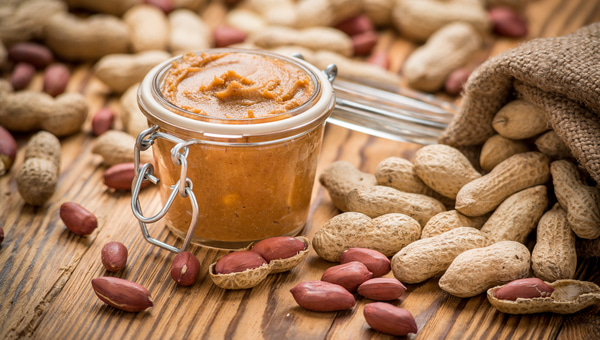ALLERGIES

Allergies are one of the most uncomfortable moments a person could experience in their life. Rashes, shortness of breath, pain and discomfort arrives and your heart pounds with worry – it can be a stressful event.
If you have experienced these symptoms, it may mean that you have a severe allergy.
But whether you are an allergy sufferer or you want to learn more about what you can do to reduce the likelihood of developing one, you are not alone. Gut Dr is here to help you understand the dynamics of allergies, particularly food allergies, how to treat symptoms and enjoy a healthier and happier gut.
What is an allergy?
An allergy is a classic case of mistaken identity. The body confuses a harmless foreign substance with a harmful one, and launches an attack as if the body were under threat. The harmless thing that the body is allergic to is called an allergen. The first time that a body is exposed to a particular allergen, the body produces an antibody — a protein that destroys harmful substances.
The antibody that is produced to fight an allergen is called IgE, and after the first contact with the allergen, IgE antibodies essentially put your body ‘on call’, ready to fight a subsequent exposure to the allergen.
Your immune system is now sensitive to the allergen and when the body comes into contact with it again, the IgE antibodies are able to organise an attack very quickly, releasing a chemical called histamine which causes the allergic reaction.
It is the histamine that can result in itchiness, wheezing, an accelerated heart rate and a drop in blood pressure — the kind of symptoms you would take antihistamines to treat.
The rise of food allergies
Allergies are increasing on an unprecedented scale in countries around the world. According to the Australasian Society of Clinical Immunology and Allergy (ASCIA), almost 20 percent of the Australian population has an allergic disease. That’s almost one in five people — a staggering figure!
We also know that it’s children who are experiencing the most severe allergies. In Australia, for young children aged between zero and four years of age, there was a 5.5-fold increase in anaphylaxis from 1994 to 2005.
Food allergy especially is becoming increasingly prevalent and now affects around 10 percent of babies up to twelve months old.
Common food allergies
We are fortunate to have such a wide variety of foods available. And given the availability of different foods, it makes sense that food allergies are on the rise. However, the most common food allergies are:

- cow’s milk
- hen’s eggs
- soybeans
- peanuts
- tree nuts like cashews, pistachios, walnuts, pecans or hazelnuts
- sesame
- wheat
- fish
- shellfish.
Symptoms of food allergy
Managing your food allergy is all about understanding your symptoms. And those symptoms are wide-ranging from mild to moderate symptoms through to severe allergic reactions (anaphylaxis).
Mild to moderate symptoms of food allergy include:
- Swelling of the face, lips and/or eyes
- Hives or welts on the skin
- Abdominal pain and/or vomiting.
Signs of a severe allergic reaction (anaphylaxis) to foods include:
- Difficult/noisy breathing
- Swelling of the tongue
- Swelling/tightness in the throat
- Difficulty talking and/or hoarse voice
- Wheeze or persistent cough
- Persistent dizziness and/or collapse
- Going pale and floppy (in young children).
Less common symptoms of food allergy include infantile colic, reflux of stomach contents, eczema, chronic diarrhoea and failure to thrive in infants.
Although mild, moderate and severe allergic reactions (anaphylaxis) to foods are common in Australia and New Zealand, deaths from anaphylaxis due to food allergy are rare.
Most deaths can be prevented by careful allergen avoidance measures, and immediate administration of an adrenaline autoinjector like EpiPen®.
Allergy versus adverse reactions
The term ‘allergy’ is often misused to describe any adverse reaction to foods. So it’s important to understand the difference between the two reactions.
While an allergy describes sensitivity to specific allergens, an adverse reaction covers things like food intolerances, toxic reactions, food poisoning, enzyme deficiencies, food aversion or irritation from skin contact with certain foods.
Symptoms of an adverse reaction to foods include headaches after having chocolate or red wine, or bloating after drinking a milkshake or eating pasta.

What you can do as a parent
As parents, we all want what’s best for our children – especially their health. So it can be a stressful experience when we realise that our children may have a food allergy.
If you think your child has a food allergy, your doctor is the best place to start. Your doctor might refer you to an allergy or immunology specialist for further checks and tests. These tests for immediate-onset allergies may include:
- Skin-prick test. Your child’s skin is pricked with a special device that looks a bit like a toothpick. It contains a drop of a specific allergen. If a hive comes up where your child’s skin has been pricked, your child probably has an allergy.
- Blood tests. The serum specific IgE antibody test uses your child’s blood to see whether they are sensitive to specific allergens. If your child’s blood has a high number of antibodies, they probably have an allergy. Your child might have this test if they are unable to have skin-prick testing.
- Oral food challenge. Sometimes your child will be given the possible allergen in a safe, supervised setting. Medical and nursing staff will watch to see whether an allergic reaction happens. This test carries a risk of anaphylaxis so should be conducted only by medical specialists in a setting where anaphylaxis can be safely and quickly treated.
Managing food allergies
While there is no cure for food allergies, the good news is that many children grow out of them. But as parents, that doesn’t make the challenge of managing your child’s food allergies any easier.
Below are some steps you can take to help you and your child to live with food allergies:
Avoid the food
This is perhaps the most obvious step, but it’s so important for your child to avoid the food they are allergic to. This can be challenging, particularly as eating even tiny amounts can cause an allergic reaction.
Your child also needs to avoid any foods or cutlery that could have been in contact with the food they are allergic to.
You can do two important things to help your child avoid the food:
- Read all food labels. Be aware that some allergenic foods have different names – for example, cow’s milk protein might be called ‘whey’ or ‘casein’. But by law, allergens must be plainly stated on food labels – such as cow’s milk, soy, egg, wheat, peanut, tree nuts, sesame, fish, shellfish and lupin.
- Be careful when you eat out. Ask what ingredients each dish includes, how it was prepared, whether it has touched any other foods, and whether there’s any risk of cross-contamination. It’s best to avoid buffets and food warmers because there’s a good chance that ingredients have been transferred from one dish to another.
Have an action plan
You should talk to your doctor about an ASCIA (Australasian Society of Clinical Immunology and Allergy) action plan. This will help you recognise and treat symptoms if your child eats something that causes an allergic reaction.
Know how to use an adrenaline auto-injector
If your child is at risk of anaphylaxis, they might be prescribed an adrenaline auto-injector like EpiPen®. These auto-injectors make it easy to self-inject adrenaline. Your doctor will teach you and your child (if they are old enough) how and when to use it.
It’s important that key people – like family, carers, babysitters and your child’s school – know how and when to use your child’s adrenaline auto-injector.
Are you ready to improve your gut health?
Childhood allergies are increasing, affecting almost one in five Australian kids. But what if there was a way to prevent allergies in the first place? What if simple lifestyle changes in the critical first 1000 days could change your baby’s life?
For families across Australia, eczema, asthma, hay fever and food allergies are constant anxieties, sometimes with devastating consequences. Leading gastroenterologist and Gut Dr Dr Vincent Ho has taken a deep dive into the exploding medical field of gut health and explains that from conception to birth, and from breastfeeding to the introduction of solid foods, small steps go a long way in preventing allergies and fortifying your baby’s immune system.
Gut Dr cuts through the scientific jargon to provide strategies for allergy management and treatment, and shows you how to strengthen your child’s gut health for the long term – all before they begin to walk.
‘The Healthy Baby Gut Guide‘ is packed with sensible advice, surprising scientific discoveries and a nutritionist-approved nine-week infant meal plan to help parents navigate the introduction of common allergenic foods. Practical, easy-to-follow and utterly eye-opening, this book is essential reading for every parent and parent-to-be.
Order your copy of ‘The Healthy Baby Gut Guide‘ and help prevent allergies, build immunity and develop good gut health from day one.
Subscribe to our newsletter for more information.
Have a suggestion?
Get in touch to submit a question for a feature article.




